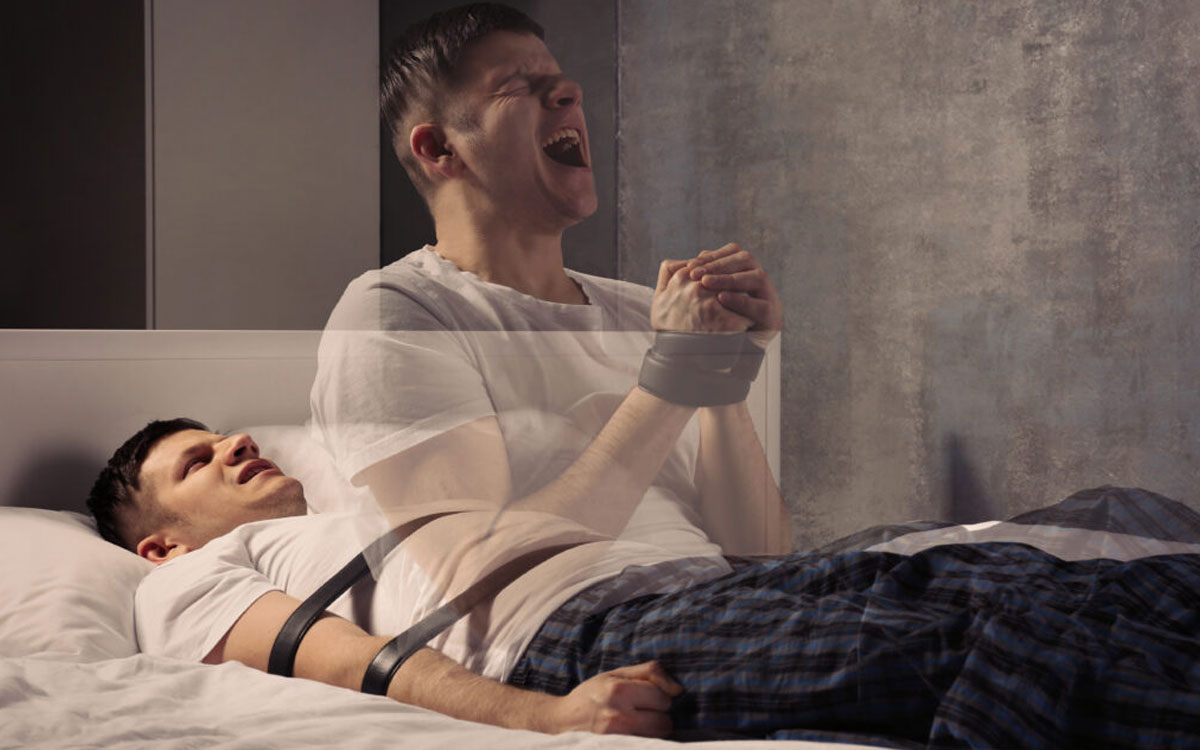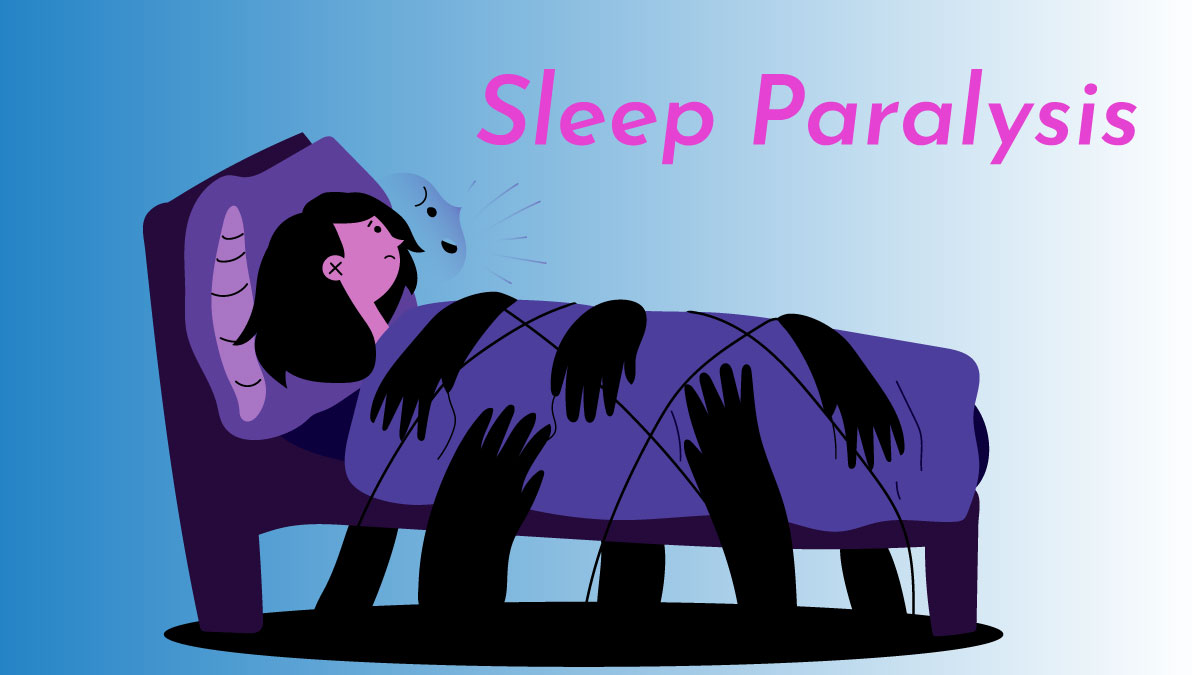Is Sleep Paralysis a Symptom of a Serious Problem?
According to sleep experts, sleep paralysis is merely a warning that your body is not going smoothly through the phases of sleep. Sleep paralysis is seldom connected to underlying psychological issues. Symptoms of sleep paralysis have been reported in a variety of ways throughout history, and are often linked to an “evil” presence: ancient night demons, the old hag in Shakespeare’s Romeo and Juliet, and extraterrestrial abductors. Throughout history, almost every culture has told tales of dark demonic monsters terrorizing innocent people at night. People have long searched for answers to the inexplicable sleep paralysis and fear sensations that accompany it.
What Is Sleep Paralysis and How Does It Affect You?
The sensation of being awake yet unable to move is known as sleep paralysis. It happens when a person transitions from one stage of alertness to the next. You may be unable to move or talk for a few seconds to many minutes throughout these changes. Some individuals may also experience a feeling of suffocating or pressure. Other sleep disorders, such as narcolepsy, may cause sleep paralysis. Narcolepsy is a sleep disorder caused by a malfunction in the brain’s capacity to regulate sleep.
When Is Sleep Paralysis Most Common?
In most cases, sleep paralysis happens at one of two periods. It’s termed hypnagogic or predormital sleep paralysis if it happens while you’re falling asleep. It’s termed hypnopompic or postdormital sleep paralysis if it strikes when you’re waking up.
What Is Hypnagogic Sleep Paralysis and How Does It Affect You?
Your body gradually relaxes as you fall asleep. Normally, you become less conscious of the shift and hence do not notice it. If you stay awake or become conscious while falling asleep, you may find that you are unable to move or talk.
What Is Hypnopompic Sleep Paralysis and How Does It Work?
Your body switches between REM (rapid eye movement) and NREM (non-rapid eye movement) sleep throughout sleep. A 90-minute cycle of REM and NREM sleep is typical. NREM sleep comes initially, accounting for up to 75% of your total sleep duration. Your body relaxes and replenishes itself during NREM sleep. Your sleep transitions from NREM to REM at the conclusion of NREM. Your eyes move swiftly, and you have dreams, yet the rest of your body is comfortable. During REM sleep, your muscles are “turned off.” If you wake up before the REM cycle is complete, you may find that you are unable to move or talk.

Who is at risk of developing sleep paralysis?
It is possible that up to four out of every ten persons suffer from sleep paralysis. This prevalent disease is often discovered during the adolescent years. However, it is available to men and women at any age. It is possible that sleep paralysis runs in families. Other variables that may be associated with sleep paralysis include as follows:
- Sleep deprivation
- Sleep schedule that is subject to alter
- Stress and bipolar disorder are examples of mental illnesses.
- Sleeping on the back is a good idea.
- Other sleep disorders, such as narcolepsy or midnight leg cramps, also be problematic.
- The use of specific drugs, such as those for attention deficit hyperactivity disorder (ADHD).
- Abuse of drugs and alcohol
What is the procedure for diagnosing sleep paralysis?
Whether you are falling asleep or waking up, you may find yourself unable to move or talk for a few seconds or minutes at a time. This is an indication that you have isolated recurring sleep paralysis. The majority of the time, there is no need to treat this ailment.
And do you know what happens before you die?
If you have any of the following concerns, you should see your doctor:
- You’re concerned about your symptoms and are feeling nervous.
- Your symptoms cause you to be very fatigued during the day your symptoms cause you to be awake during the night Your doctor may wish to obtain further information about your sleep health by doing any of the following:
- Instruct you to explain your symptoms and maintain a sleep diary for a few weeks to help us better understand you.
- Discuss your medical history, including any sleep problems you may have had or any sleep disorders you may have inherited from your family.
- Obtain a referral for you to a sleep expert for further assessment.
- Conduct overnight sleep studies or daytime nap studies to ensure that you do not have another sleep condition that requires treatment.
What is the treatment for sleep paralysis?
The majority of individuals do not need therapy for sleep paralysis. Treatment of any underlying problems such as narcolepsy may be beneficial if you are worried or have difficulty sleeping. The following are examples of therapies that may be used:
- improving sleep habits — such as ensuring you receive six to eight hours of sleep per night —
- Utilizing antidepressant medication if it has been recommended to assist with sleep cycle regulation
- Identifying and treating any mental health issues that may be contributing to sleep paralysis.
- Treating any other sleep problems, such as narcolepsy or leg cramps, as well as treating insomnia
What Should You Do If You Have Sleep Paralysis?
Nighttime monsters or extraterrestrial abductors are not anything to be afraid of. In the event that you suffer from intermittent sleep paralysis, you may take action to manage the condition at home. To begin with, make sure you are getting enough sleep. Make every effort to reduce stress in your life—particularly shortly before bed—by doing everything you can. If you sleep on your back, experiment with other sleeping positions. Also, see your doctor if you have sleep paralysis on a regular basis, preventing you from getting a decent night’s sleep.




